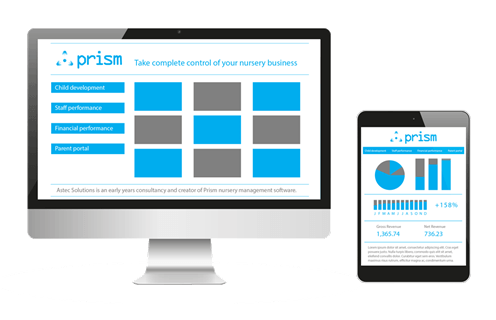Reflective practice has been a buzzword of this era of teaching. As students, our college and university lecturers drummed it into us, “reflect, reflect, reflect”!
We kept reflective portfolios, created daily lesson reflections or had one-to-one reflection meetings with our mentors. We verbalised or wrote down our thoughts. We evaluated and we planned to improve. But student life (sadly!) comes to an end.
We soon become overwhelmed and bogged down by the hectic day-to-day life of the early year’s professional and time to reflect quickly becomes a thing of the past. With hundreds of other things still to complete on your to-do list, it is easy to think “why should I bother?”
You should bother because the benefits outweigh the costs.
Improve quality at all levels
Reflective practice is a method of questioning, evaluating, analysing and engaging in deep thinking about our practice that means we continue to learn and develop as educators.
When put in place effectively, reflective practice is an activity that can improve quality of provision at all levels and, ultimately, has a positive impact for those in our care.
Practitioners will begin to consider and understand the impacts of their action. This will help them improve their day-to-day practice and plan more effectively, ensuring that their learning is continued, extended and supported.
Managers can look at a wider level too. Reflection creates an avenue whereby they can ask: ‘why…’, ‘how…’, ‘what if…’, ‘what else…’ about their program and, ultimately, move their nurseries towards their goal.
Whatever level you are at in your early years career, reflective practice can help you to analyse situations or learning experiences – whether that be with children or staff – to make better sense of what has happened in a methodical way. Taking five minutes ‘out’ to really process what has happened and the learning that has occurred can mean the difference between progression and regression. It ensures that you’re always on an upwards spiral rather than remaining stagnant.
The key ingredients of reflective practice: integration and time
To realise the benefits of reflection in your setting, you need to demonstrate its value to your team by integrating it into daily practice and giving staff adequate time to reflect.
You can do this in a variety of ways, such as:
- a five-minute reflection period after a completion of an activity and build that into a routine
- reflection diaries whereby practitioners can write down their thoughts
- reflection sheets for specific needs, such as analysing the precursor and consequences of a child’s behaviour.
You can also use a team reflection sheet and action plan which your team can use to discuss what has been happening and how they are going to improve as a unit.
Give your staff and team some prompts to help them consider the right questions. Here is an example:
- Reflect – think who, what, when, where, how and what?
- Reject – what needs to change or what would you not do again?
- Reinvent – what are you going to next time? What changes are going to be made? What’s the next step?
Reflection is a continuous cycle of reflect, do and reflect again. Integrate it into your programme so that it becomes an intrinsic part of your day-to-day practice on all levels and you will ensure that each member of your team is striving, improving, thinking and learning.
Heather Stallard
Latest posts by Heather Stallard (see all)
- Vision, values & clarity - 7 January 2016
- Parental Partnerships – the conversations we’re not having - 10 November 2015
- Quality improvement in process: adopting BEEL and EEL - 13 October 2015



Recent Comments